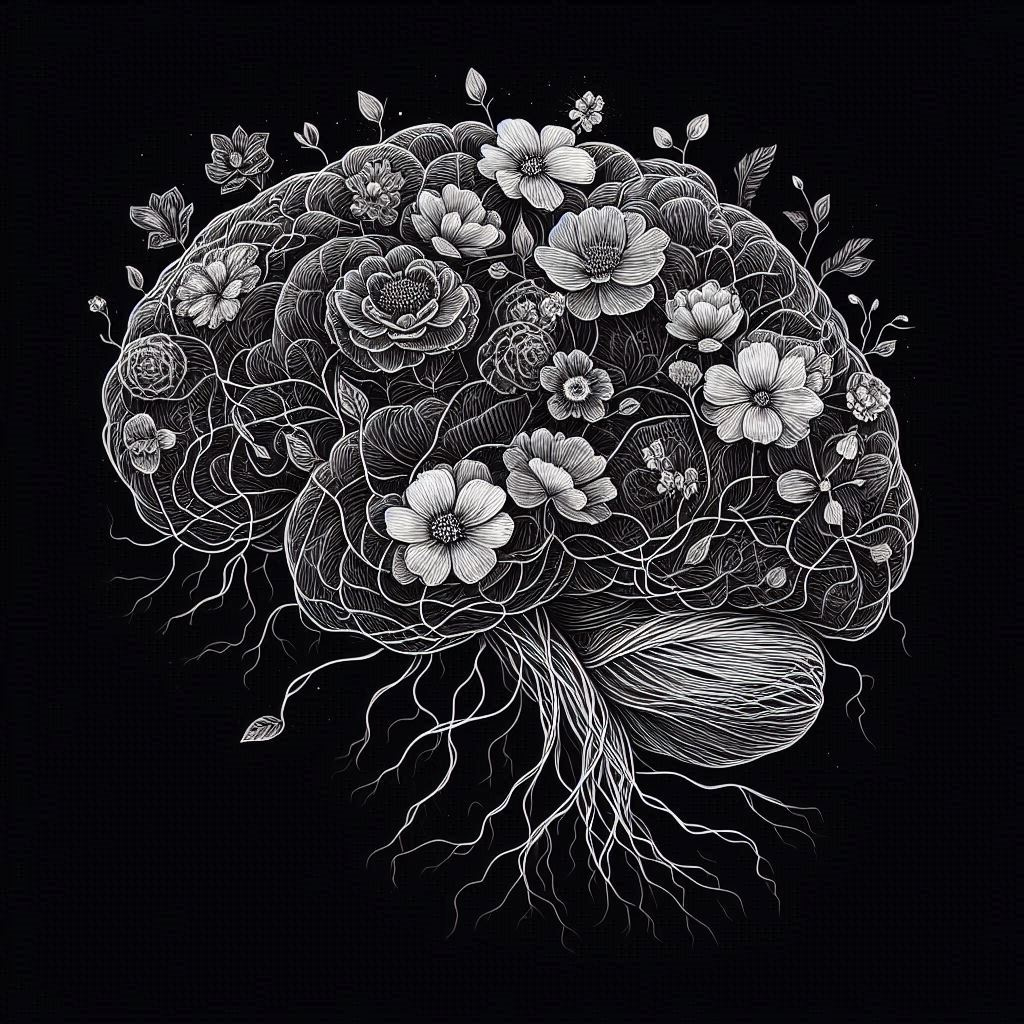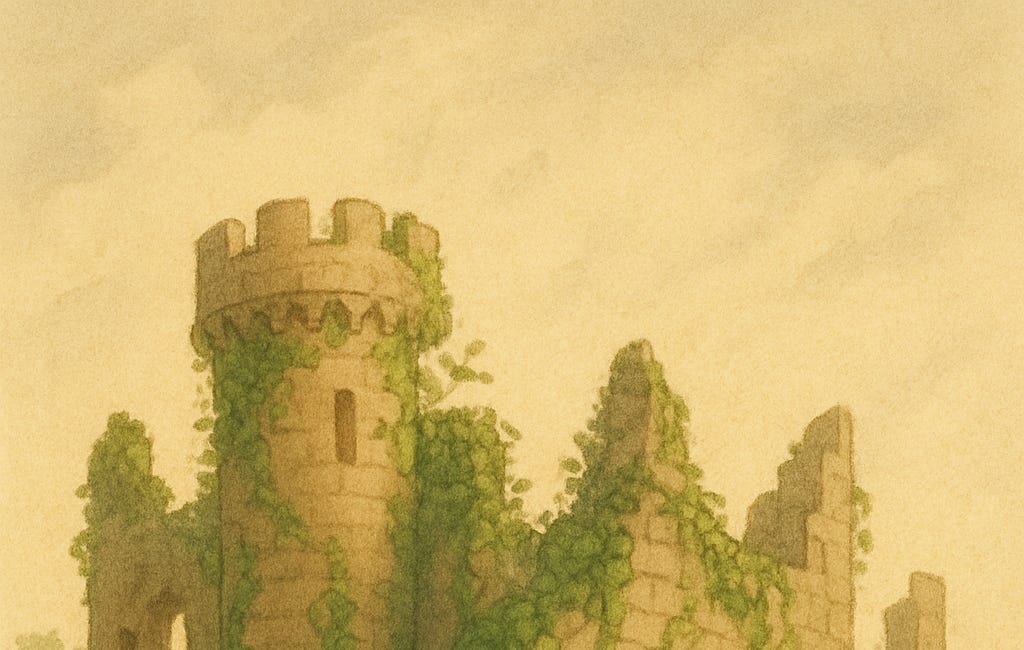To the deep thinkers,
Welcome to the Deep Thinkers Newsletter: A collection of essays dedicated to going beyond the surface.
If you’re new here, check out the Deep Thinkers archive.
This week, my therapist is retiring.
That sentence alone would’ve made 20-year-old me’s head explode if he could read it.
The reason is that talking about my problems has always been a massive hurdle for me. And yet, when I found myself crumbling beyond what I felt I could manage, I finally sought help.
In finding the help I needed, I’ve grown as a person. But I still struggle every single day to appreciate the progress I’ve made. I can’t concentrate on how far I’ve come because I’m so fixated on my failures, or all I have yet to accomplish.
On and on and on, I am shrouded in shame, seemingly incapable of appreciating myself, of ever granting myself any credit.
Well, now that I know I won’t have regular talks with my therapist anymore, I’m forced to reflect on where I was 18 months ago. Since then, I’ve been challenged to view myself and my life experience through a whole new lens.
But how do I internalize this feeling of lucidity for good? How do I turn the inner critic—the one that only speaks the language of shame—to ash?
My default mode has become negative speech. It’s become habitual, and I’m scared that if I can’t find more compassion for myself, then all the progress I’ve made will slip through my fingers, leaving me in irreparable ruin.
The Progress Paradox
So much of life is thinking about problems and then thinking of solutions to those problems.
For some of us, no amount of life experience can ease the anxiety. Even 5 million XP points won’t stop us from imagining armageddon around every corner. Rumination, neurosis, and obsession are all we know. Shame and regret the manacles around our ankles.
Progress doesn’t feel like anything to me anymore. All I can think about is what I’m not doing right, or some far-off goal that I’m hoping will be my salvation.
I’ve spoken with people who are also clawing their way up the mountain, only to realize that they don’t remember a single step they took on their way up.
I know why I struggle with this, but knowing why is not enough.
I feel frozen in time, like I’m in a never-ending fight with myself and some of the same issues. I’m hard on myself, and I just can’t help it. To feel ashamed of myself feels more natural than being confident or proud.
It’s only by sharing these words that I can dig into the center of this internal war. I’m forced to search for true relief—maybe not a perfect solution, but some kind of clarity of spirit.
When we are trying our best but can’t appreciate the progress, we are living in a paradox, blind to progress while grappling with the awareness of that very blindness.
In other words, our greatest strength (deep introspection, living in our minds) is also the main thing keeping us from seeing our growth.
Silent Healing
One of my favorite musical artists, Yeek, sings in his song "If I Could:"
I talk too much
But only in my mind
When these thoughts come out
They don’t come out right
I know all too well what it’s like to live with this kind of mental noise. When I do finally say what’s on my mind, it rarely comes out the way I intended. Each day, my inner dialogue feels more and more like a barrier, the ultimate barricade between me and genuine appreciation for myself.
It makes me wonder: Is progress inherently invisible to a progressive mind?
The push to improve—to be better—is often the very thing that prevents me from acknowledging how far I’ve come. I’ve noticed that many of those who’ve left a mark on humanity were rarely at peace with themselves. Their lives were driven by constant progress, leaving little time to sit back and reflect on what they had achieved. (I think of someone like Franz Kafka, who doubted the worth of his own writing so deeply he asked for it to be destroyed after his death.)
Many, sadly, passed away before they could see how their impact shaped the world. Others simply refused to pause and reflect.
Honestly, I think the mind that drives improvement might be unsuited to fully appreciate said improvement.
At least not for very long.
Anchors in the Chaos
The moments when I do reflect on my progress feel strange, but not in a bad way. It feels like I’m floating. Everything feels quiet. Not externally, but internally.
The self-criticism, the fear of the future, the worries of the present, all stop.
A confident quietude takes over, one that gently nudges me toward compassion and gratitude.
It feels like bliss.
But it’s fragile—fleeting. A peace that slips away the moment my thoughts get loud again. After all, life often feels like walking on a balance beam with two types of silence waiting on either side.
Silence of Shutdown: depression, overwhelm, numbness, giving up.
Silence of Arrival: the moment my mind stops antagonizing me and recognizes we are exactly where we need to be.
The silence of arrival reminds me: I’ve made it through before, I’ve never carried anything that truly crushed me, and I figure it out every time—so why would this time be any different?
Through the constant push-pull with my inner critic, one ritual has always been a saving grace: a long walk with nothing to distract me. No music. No podcast. No audiobook. Just the sound of my shoes on the ground and my own voice.
I've always found it hard to question my inner critic or limiting beliefs—at least in my head. But when I’m walking and talking out loud, detaching from judgment becomes easier. I can finally see things from a different perspective. It feels like the relief I need most.
Besides long walks, conversations with others help a lot. The oldheads remind me that I still have so much life ahead of me. Those younger than me remind me how scared I once was, and how much anxiety I had about the future.
These are my anchors. They pull me away from the riptide of my own thoughts and help me see things with more clarity. Ironically, these anchors give me space to finally breathe.
The Architecture of Perspective
We all need our anchors, the rituals or practices that bring us to that quiet place of appreciation for ourselves and all we’ve already accomplished.
The problem is, modern life constantly pulls our attention elsewhere.
But with the help of our anchors, we can build what I like to call an Architecture of Perspective—a kind of distance between us and the inner critic, the kind of distance needed to make sense of all that still lives within the catacombs of our mind.
The distance this perspective gives brings relief. Temporary, sure. But sometimes that’s exactly what we need to keep going. A release from the tension tearing us apart. A momentary break from shame and self-criticism. It’s as if, during that transient moment, the opportunity to sneak in a few steps forward presents itself.
Without zooming out, appreciating our progress is nearly impossible. I don’t think I’ll ever be an expert at zooming out. I think that’s ok. That’s why I have my anchors. My long walks. My writing. Conversations with others.
It is through the gentle pull of these anchors that I gain the perspective necessary to know that I am not living in vain. I am always becoming.
The Most Generous Act
What I’m learning more each day is that, rather than seeing my wiring as a defect, I can see it as an internal course-correcting system (if I choose to see it that way).
The truth is, I care.
I care about being better, about how I live my life, about how I treat or have treated others.
And care is the foundation of all progress.
We're led to believe that progress is about achievement, results, and metrics. But the true engine is caring.
I just want to give back to the world, to feel like I did something with what I've been given. I don't want self-appreciation for its own sake. I want it because my flow state exists in a dimension outside of fighting myself.
That is when I can really give back.
I guess I’m just looking for lasting self-compassion. Because one thing I’ve realized is that when we’re kinder to ourselves, giving love becomes easier. So, appreciation for ourselves truly is one of the most generous things we could do for everyone else.
Enjoying the essays? Consider becoming a paid subscriber to support more thoughtful, in-depth work like this.
Or leave a one-time tip—every little bit helps
Your support, whether monetary or simply sharing this essay, means the world to me.
✍🏾 In Case You Missed It:
Much love,
—Jon ♾️





Jon, I love your work so much. I save it in my inbox to really savor so that I don't rush or miss anything. First of all, I didn't know Yeek and was completely mesmerized by his voice, his lyrics, and his movements in that video. The kid of the bike made it all the better!!!! I will be listening to more. of him and feel so lucky to know his work now. Wow.
And this truth you penned is a powerful one lost on too many: "Because one thing I’ve realized is that when we’re kinder to ourselves, giving love becomes easier. So, appreciation for ourselves truly is one of the most generous things we could do for everyone else." Yes.
So many wisdom practices focus on this. When we can love ourselves and find peace within, we can be of most service to others. Suffering begets suffering. Peace begets peace.
Love where your writing takes me again and again. <3
Thank you for making me feel that I am not alone